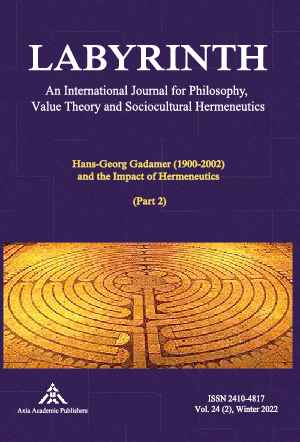Modelling Speech and Speakers: Gadamer and Davidson on dialogue, agreement, and intelligible difference
Modelling Speech and Speakers: Gadamer and Davidson on dialogue, agreement, and intelligible difference
Author(s): Vladimir LazurcaSubject(s): Philosophy, Contemporary Philosophy, Analytic Philosophy, Hermeneutics
Published by: Axia Academic Publishers
Keywords: Gadamer; Davidson; dialogue; agreement; alterity; other; intelligibility; cultural difference
Summary/Abstract: This paper examines Gadamer's and Davidson's dialogical models of interpretation. It shows them to be comparable, but importantly dissimilar with respect to the kind of agreement they require for communication to be possible. It is argued that this difference entails different concepts of alterity: they model not only how we talk, but implicitly who we can intelligibly talk to. Another important contribution of this paper is to uncover a distinction in Gadamer between two kinds of agreement missed so far by all commentators. The final section of this paper defends a second thesis, namely that the degree of agreement required by the models is proportional to the conceptual difference it can make intelligible. Hence, the extent of graspable cultural difference is not only an empirical matter, but is entailed by our choice of model.
Journal: Labyrinth: An International Journal for Philosophy, Value Theory and Sociocultural Hermeneutics
- Issue Year: 24/2022
- Issue No: 1
- Page Range: 67-95
- Page Count: 29
- Language: English

